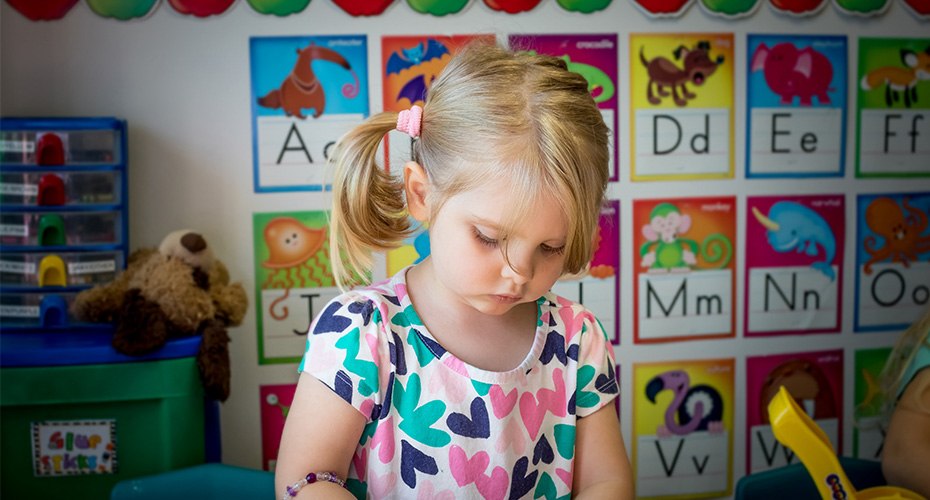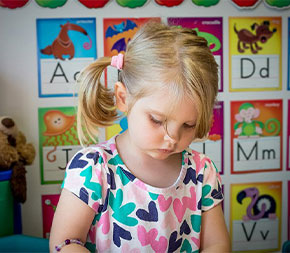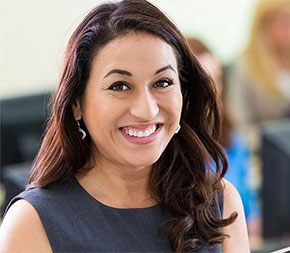Choosing an Early Childhood Education Degree Program


While not all institutions require a degree in early childhood education to work with young kids, many do require some specialized training, and increasingly, you must get an associate’s degree or a bachelor’s if you want to begin a career in early childhood education.
If you plan to advance your career into administration, or own your own preschool, a bachelor’s or master’s is a must.
There are three main types of early childhood education degree programs, depending on the type of job you’ll be looking for:
- Associate Degree (2 years)
- Bachelor’s Degree (4 years)
- Graduate Degrees, including Master’s and Doctoral Degrees (2-6 years)
Many education schools offer an early childhood education online degree, or fast-track teacher certification programs if you already have a degree in a specific subject area.
How to Pick Your Degree Program
The first step in deciding which early childhood education degree program is right for you is to familiarize yourself with the different options and understand what each degree means in the world of education.
Undergraduate Degrees
Undergraduate degrees provide you with the necessary (and marketable) skills you need to start your career working with young children.
Associate Degree in Early Childhood Education
This 2-year degree qualifies you for many entry-level early childhood education jobs. It is the least costly degree to earn, and can often stand in for the first two years of a bachelor’s degree program if you choose to pursue a full bachelor’s degree. Many associate’s degrees prepare students for a general teaching job, but may not be enough of an educational background for broader advancement within a school or organization.
Bachelor’s Degree in Early Childhood Education
The bachelor’s degree generally requires four years of course work. It may qualify you to be considered for employment, with a greater expectation of advancement than for those teachers with an associate’s degree. According to the National Center for Education Statistics, “Adults ages 25 to 34 with a bachelor’s degree or higher may have higher median earnings than their peers with less education.”
Graduate Degrees
Graduate degrees are for those who want to do research into ECE and teach educators, or work in supervisory positions.
Master of Education (MEd) degree with a focus in Early Childhood Education
The MEd comes after a bachelor’s degree, usually takes one to three years to complete, and normally requires a thesis for graduation. Master’s degree holders have a deeper level of expertise and are highly valued in more complex positions. With a MEd, you may also start your career at a higher level and have the opportunity to advance more quickly. Students often specialize in Curriculum and Instruction, Technology, Educational Administration, or Organizational Leadership, depending on their interests.
Doctoral Degrees
Doctoral Programs are for people who want to do research and add to the body of knowledge in the field of education, or teach other early childhood educators at the university level.
Doctor of Education: Doctoral programs are designed for K-12 teachers who want to continue teaching while assuming leadership roles in their school and community. They focus on the teacher as leader and empower experienced master teachers to improve student learning and make school- or system-wide improvements.
PhD in Education: In a PhD program, you will develop the expertise to lead in the development of new program practices, to apply emerging research on development in the early years and to conceptualize new paradigms for early learning. Graduates attain key positions in college teaching, research, leadership positions and advocacy roles addressing the needs of young children.
What You’ll Learn in an ECE Degree Program
Your early childhood education degree program should prepare you to understand the fundamentals of early childhood growth and development, what education and curriculum works best, the business and management of early childhood education facilities, and leadership and advocacy for your young students.
A typical bachelor’s program may include courses such as these:
- Social and Behavioral Sciences
- Mathematics
- English
- Teaching Children with Special Needs
- Infant and Toddler Mental Health
- Language Development
- Classroom Management
- Preschool Behavior
- Cognition and Behavior
To be admitted into your bachelor’s program you will need to submit official transcripts from your high school, any college coursework transcripts, transfer credit evaluations, and hold a minimum GPA that has been decided by your college. Generally this is a 2.0 – 2.5 for admission.
Financial Aid Options
When deciding which early childhood education degree program to pursue, your ultimate career goal is of prime importance. But education takes both time and money, and it’s important to determine how much of each you have. Don’t fret, though, because education is an important investment in your future and money may be available for those who qualify.
Some financial aid options:
- college grants
- student loans
- scholarships from professional organizations, private sponsors and companies interested in helping qualified students.
Read more about financial aid that could help fund your early childhood education degree.
Online Degree Programs in Early Childhood Education
Are you trying to balance a job and family with much-needed education? Getting an early childhood education online degree gives you access to the same education you would get in a classroom, but instead of spending valuable time commuting to campus, you just need a computer with Internet access to get your online teaching curriculum. You’ll watch video lectures, review course materials, interact virtually with the professor and other classmates, have online discussions, and complete and turn in assignments-all from the comfort of your own home.
In addition to the flexibility of taking a class from home, an early childhood education online degree may allow you to do convenient things like pause a video lecture if you find yourself behind in taking notes or need a quick break. Online degrees are a great way to make education fit into your busy lifestyle.
How ECE Online Degrees Work
- Average number of class logins required per week: 2 to 5
- Average time spent doing course work: 13 hours per week
- Class formats: Synchronous versus Asynchronous. In an early childhood education online degree, you have one of two class options. In a synchronous class, all students log in at one set time and are in constant dialogue with the professor and each other. In an asynchronous course, each student logs in independently to complete the course work, although virtual group discussions can also be scheduled.
- Tech skills: You’ll need to be able to use a computer, the Internet, a word processing program and email, either a school’s proprietary learning management system (LMS) or an online learning program such as Blackboard Learn LMS, Moodle LMS or Schoology LMS, and participate in chat, Zoom, or Skype groups with other students and your instructors. Most early childhood education online degrees have training demonstrations to teach you what you need to know.
- Computer requirements: A computer, Internet access, fast WiFi, a basic Internet browser, texting and email. Each specific degree program will specify its operating system requirements.
- Human contact: Most early childhood education online degrees make it easy to get in touch with your professors and fellow class members via phone, email, text, Zoom, Skype, and discussion boards.



